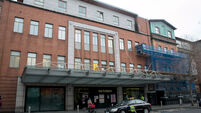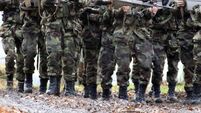Violence in home changes children’s behaviour

It found that distress caused by domestic violence showed itself in infants and toddlers as excessive irritability, a fear of being alone, sleep disturbances, and regressed behaviour.
A seminar on the issue also heard from one contributor who was aware of a case in past years involving a child who was hung from a nail on a wall by her father to watch while he physically abused her mother.













